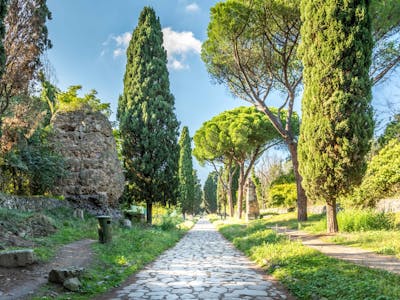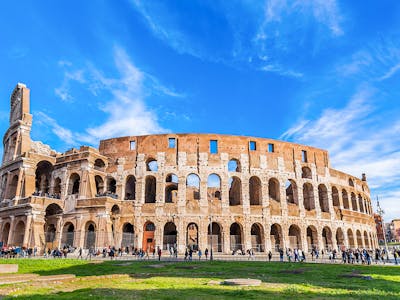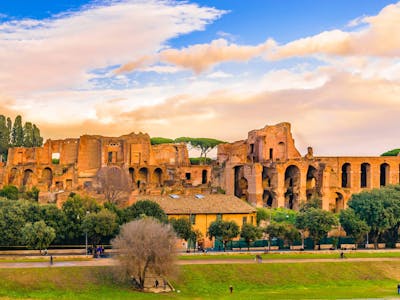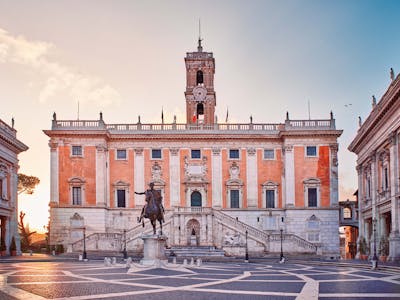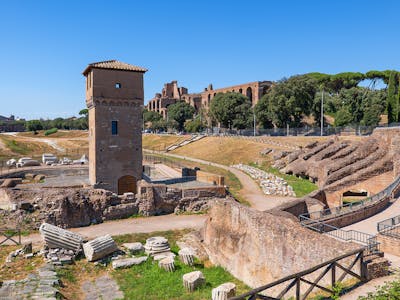The Baths of Caracalla is a well-preserved ancient Roman bathing complex, which has now become a renowned tourist destination in Rome. The sheer magnitude and magnificence of the Baths of Caracalla serve as a tribute to the opulent lifestyle of the ancient Romans.
Baths of Caracalla in a Nutshell
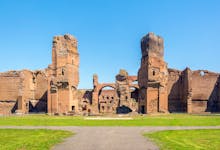
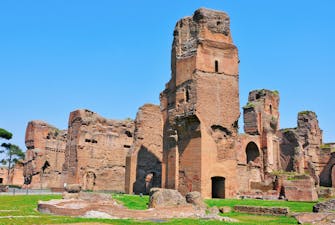
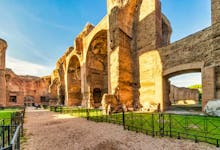
Handy information
| ⏰ Suggested Duration: | 2-3 hours |
| ☀️ Best Time to Visit: | Early morning or late afternoon |
| 🎟️ Baths of Caracalla Ticket: | €8 |
| 💜 Combo Tickets: | €31 |
Must-see at the Baths of Carcalla
- The caldarium, tepidarium and frigidarium rooms
- The outdoor gardens and courtyards
- The underground passages and service areas
Getting There
Address: Viale delle Terme di Caracalla, 52, 00153 Rome RM, Italy
Get Directions
Opening Hours
Daily: 9 AM – 7 PM
Last entry is at 6.30 PM
Closed: 1st January, 15 August, and 25 December.
Why is Baths of Caracalla worth visiting?
- The Baths of Caracalla offer visitors a unique opportunity to step back in time and experience the grandeur of ancient Rome.
- Visitors can explore the vast complex and see the impressive architectural features, including the underground tunnels and towering walls.
- The baths were an important part of daily life in ancient Rome, and offer a fascinating insight into the culture and lifestyle of the time.
- The outdoor gardens and courtyards are also a highlight of the complex, providing a peaceful oasis in the heart of the city.
- A must-visit attraction for anyone interested in ancient history and architecture.
Recommended Baths of Caracalla Tickets
Depending on the kind of experience you seek and time in hand, you can choose from a variety of Baths of Carcalla tickets.
Baths of Caracalla History
The Baths of Caracalla were built during the reign of Emperor Caracalla, who wanted to create a grand public bathing complex to rival those of his predecessors. The baths were designed to accommodate up to 1,600 bathers at a time and covered an area of 33 acres.The complex was in use until the 6th century AD when it was abandoned and fell into disrepair.
Despite this, the Baths of Caracalla have remained an iconic symbol of ancient Rome and continue to attract visitors from all over the world. Today, the complex is one of the best-preserved examples of Roman bathhouses in the world, and visitors can explore the underground tunnels, admire the towering walls, and soak up the atmosphere of ancient Roman vibes.
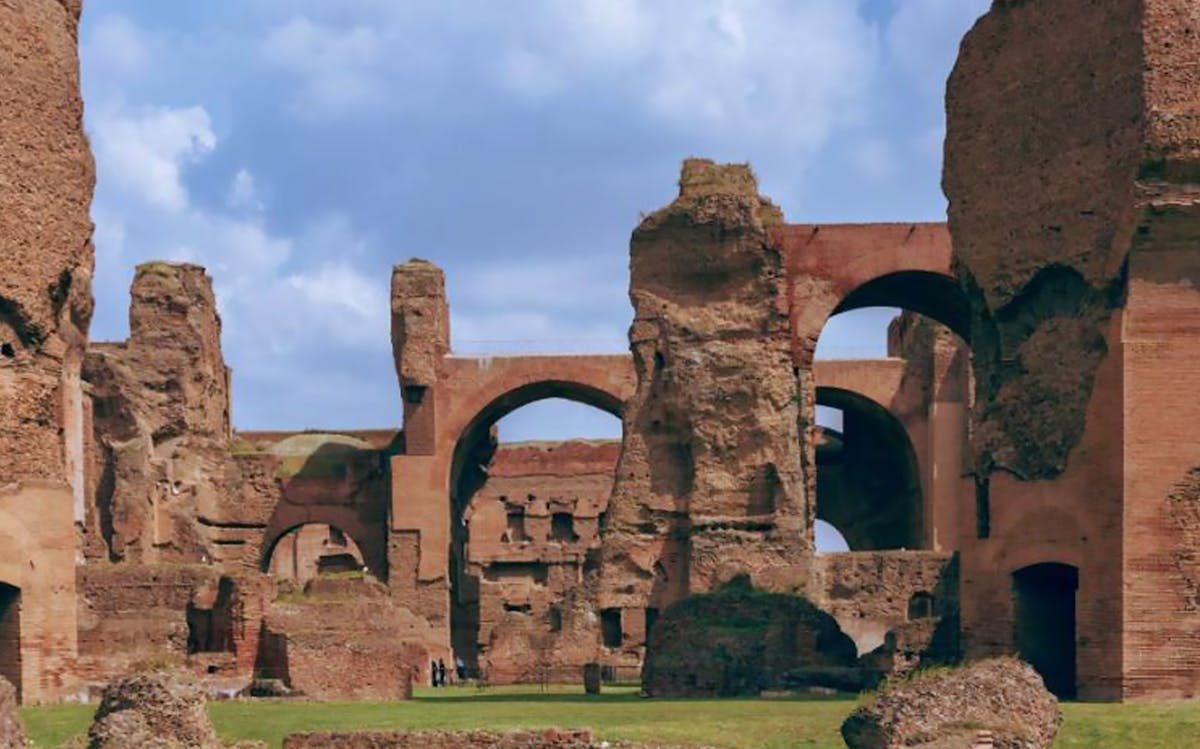
Baths of Caracalla Architecture
The Baths of Caracalla, also known as the Thermae Antoninianae, is one of the largest and most impressive ancient Roman public baths. Built in the 3rd century AD, the baths were an engineering marvel, covering an area of 28 acres and accommodating up to 1,600 bathers at a time.
The most striking features of the baths are the massive brick walls, intricate mosaics, and beautifully preserved marble floors. The caldarium, tepidarium, and frigidarium are the main areas of the baths that visitors should explore.
The baths also have several Instagrammable spots such as the outdoor gardens, the colonnaded promenades, and the expansive central pool. To see the baths in all their splendor, we recommend visiting early in the morning or late in the afternoon when the sunlight creates a dramatic effect on the building's walls.
Highlights of Baths of Carcalla
1The Calidarium
Immerse yourself in the ultimate relaxation experience at the Calidarium. This hot room boasts a stunning circular pool and intricate mosaics that will transport you back to ancient Rome. Look up and marvel at the dome-shaped ceiling with its central oculus that lets in natural light.
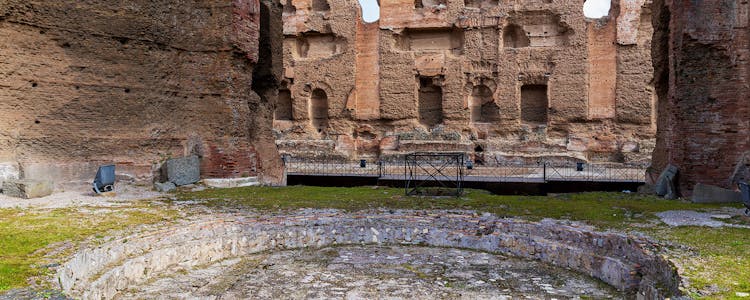
2The Tepidarium
The Tepidarium, a warm bath in the Baths of Caracalla, was a place where ancient Romans could relax and socialize. Its soaring domed ceiling and intricate mosaic floors speak to the grandeur of the Roman Empire, while its comfortable temperature provided a soothing escape from the heat of the day.
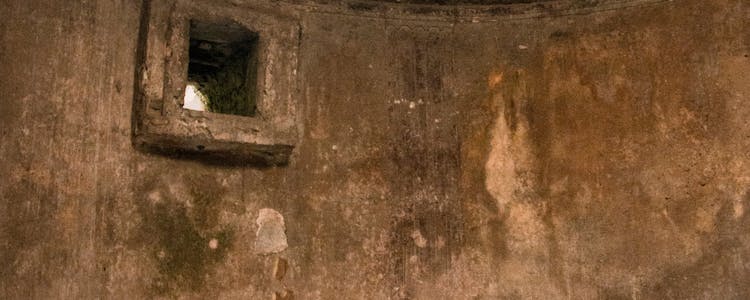
3The Frigidarium
Cool off in style at the Frigidarium, the cold room of the baths, an essential part of the ancient Roman bathing ritual. Its large pool of icy water provided a refreshing and invigorating experience, especially after the heat of the other baths. The large rectangular pool and vaulted ceilings create a serene and refreshing atmosphere.
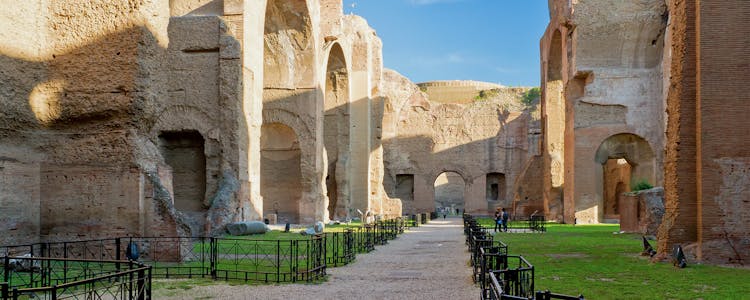
4The Natatio
Bask in the Mediterranean sun at the Natatio, the outdoor swimming pool of the baths. Adorned with lush gardens and serene fountains, this idyllic setting was ideal for both exercise and leisure. Take a dip and feel the stresses of modern life fade away.
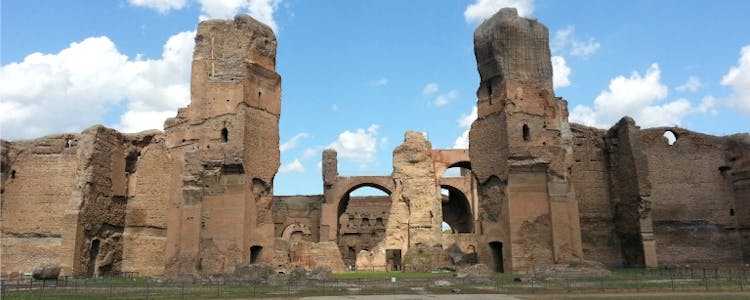
5The Mosaics
The Baths of Caracalla boast some of the most impressive mosaic designs in the world. These exquisite designs feature a variety of subjects, from mythological scenes to intricate geometric patterns. Made from thousands of tiny tiles or tesserae, these mosaics were a testament to the skill and artistry of the ancient Roman craftsmen.
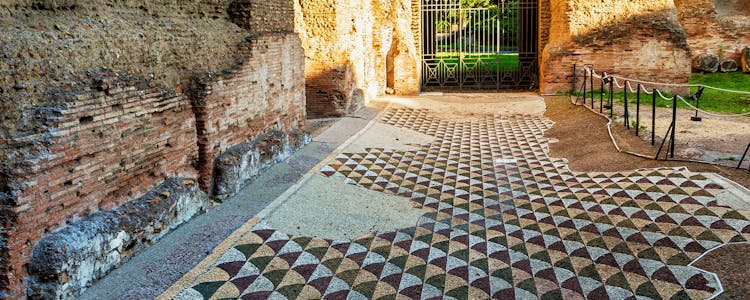
6The Library
Step into the ancient world of knowledge at the Baths of Caracalla's public library. With over 20,000 scrolls, this library was a treasure trove of information and was open to all who thirsted for knowledge. Imagine reading the same scrolls that ancient Romans read thousands of years ago.
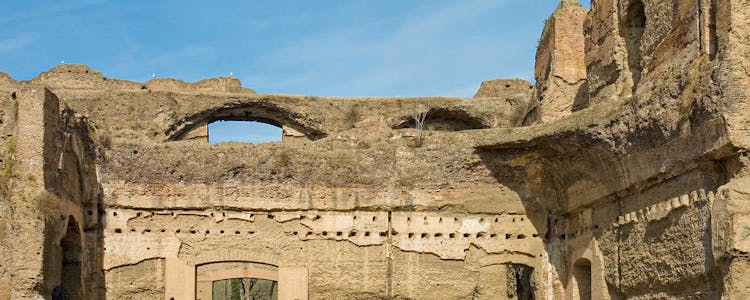
7The Hypocaust System
The Baths of Caracalla featured an innovative heating system. The hypocaust system was a marvel of engineering that demonstrated the sophistication of Roman technology and architecture. Hot air, fueled by wood or coal, would be circulated through channels, creating a cozy and comfortable environment for visitors to unwind and relax.
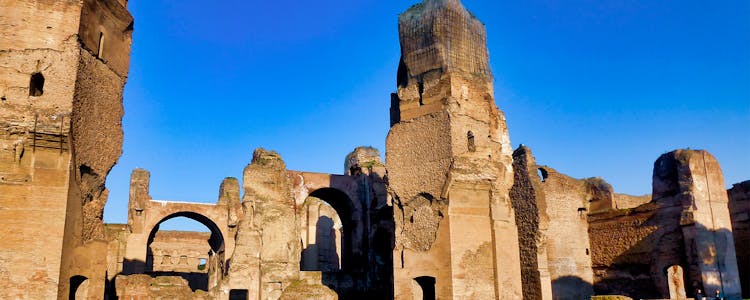
8The Olympic-Sized Stadium
An impressive feat of engineering, capable of accommodating up to 6,000 spectators. The grand structure hosted athletic competitions and other public events, featured soaring arches, intricate stonework, and a vast arena that served as a symbol of Rome's power and influence. One can imagine the sights and sounds of ancient Rome's sporting events.
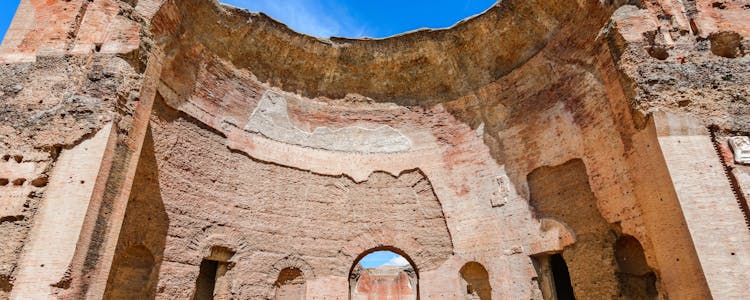
9The Imperial Palace
Walk in the footsteps of emperors at the imperial palace next to the Caracalla Baths. One of the largest and most striking palaces in ancient Rome, it symbolized power and grandeur. Visitors would often catch a glimpse of the emperor and his entourage walking through the palace gardens, adding to the allure and magic of this incredible site.
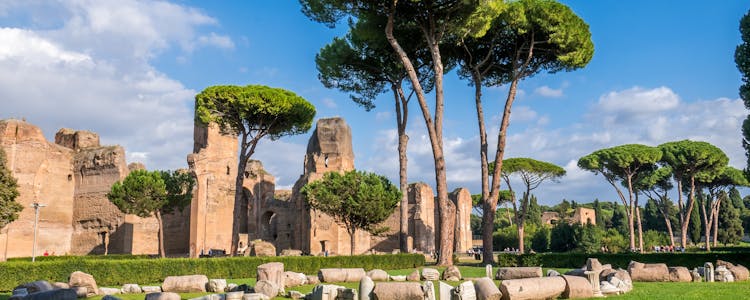
Best Time to Visit Baths of Carcalla
Peak Season (June to August): During this time, when the weather is hot and dry, the site can be crowded with tourists, and temperatures can be uncomfortable for outdoor activities. However, this season offers longer daylight hours and the opportunity to enjoy evening events at the site.
Off-Season (September to May): With cooler temperatures and fewer crowds it can make for a more enjoyable and comfortable experience. As less time is spent waiting in lines and more time to explore the site at your own pace. Additionally, visiting during off-season travel can also provide cost savings on accommodations and activities.
Ultimately, the best time to visit the Baths of Caracalla depends on your personal preferences and travel goals. Regardless of when you visit, the site offers a unique and fascinating glimpse into ancient Roman culture and architecture.
Baths of Caracalla Timings
General Timings
Tuesday – Sunday: 9 AM – 6:30 PM
Monday: 9 AM – 2 PM
Closed on: 1 January, 1 May, 25 December.
Every day starting at 9 am, it is accessible to the public. However, the closure times are seasonal. The closing times for different seasons are as follows:
- October (last Sunday) to February 15th: 4:30 PM
- February 16th to March 15th: 5:00 PM
- March 16th to (last Saturday) of March: 5:30 PM
- March (last Sunday) to August 31st: 7:15 PM
- September 1st to September 30th: 7:00 PM
- October 1st to (last Saturday) of October: 6:30 PM
- Night visits (late August to late September): 8:00 PM
Getting There
Bus
There are several bus lines that stop near the baths, including lines 160, 628, and 716.
Metro
Take the Metro (blue B line) to Circo Massimo and walk 14 minutes to the Baths of Caracalla from there.
Train
Get off at the Roma Termini station, board the 714 bus, and get off at Terme Caracalla, which is only a 2-minute walk from the Baths.
Car
The Fiumicino/Leonardo da Vinci airport is the closest airport to the Baths of Caracalla and is situated around 30 kilometers away. The trip will take 30 to 40 minutes if you decide to use a taxi.
Insider Tips to Visit Baths of Carcalla
- Plan your visit in advance: The Baths of Caracalla are a popular tourist attraction, especially during peak season. To avoid long lines, consider buying tickets online in advance or arriving early in the morning.
- Wear comfortable shoes: The Baths of Caracalla are quite large, and you'll be doing a lot of walking. Wear comfortable shoes and bring a bottle of water to stay hydrated.
- Bring a guidebook: There are many interesting features to explore at the Baths of Caracalla, including the caldarium (hot bath), tepidarium (warm bath), and frigidarium (cold bath). Bring a guidebook or use an audio guide to learn about the history and architecture of each area.
- Visit the mosaics: The Baths of Caracalla are famous for their beautiful mosaics, which are some of the best-preserved examples of Roman art in the world. Take the time to admire the intricate designs and vibrant colors.
- Explore the underground areas: The Baths of Caracalla have several underground tunnels and chambers that were used for heating and water storage. These areas are not always open to the public, but if they are, don't miss the chance to explore them.
- Take a break at the café: If you need a break from walking and exploring, there's a café inside the Baths of Caracalla where you can relax and enjoy a snack or drink.
- Bring a camera: The Baths of Caracalla are a photographer's paradise, with stunning views and unique architectural details at every turn. Don't forget to bring your camera and capture some memories of your visit.
Baths of Carcalla Facts
- The Baths of Caracalla were built in the 3rd century AD during the reign of the Roman Emperor Caracalla. They were completed around 235 AD.
- The Baths of Caracalla were one of the largest public bath complexes in ancient Rome. They covered an area of over 33 acres and could accommodate up to 1,600 bathers at once.
- The Baths of Caracalla were not just a place to bathe. They were also a place for socializing, exercise, and relaxation. The complex included libraries, gardens, and shops, as well as hot and cold pools, saunas, and massage rooms.
- The Baths of Caracalla were heated by a system of underground furnaces and boilers. The hot air and water were circulated through pipes and channels beneath the floors and walls of the complex.
- The Baths of Caracalla were decorated with elaborate mosaics, frescoes, and sculptures. Some of the best examples of Roman art and architecture can be found at the Baths, including the famous Farnese Bull sculpture.
- The Baths of Caracalla were in use for less than 300 years. They fell into disrepair in the 5th century AD and were eventually abandoned.
- Despite their decline and abandonment, the Baths of Caracalla have had a lasting impact on Western architecture and engineering. The heating and water systems used at the Baths influenced the design of public baths, palaces, and other buildings for centuries to come.
Restaurants Near Baths of Caracalla

Vi&Mi was designed as a meeting place, where the warm and friendly atmosphere will serve as the starting point for a day of adventure amd socialising. You get to sample cutting-edge cuisine with fantastic, genuine flavours made with ingredients from the Val Dorcia region.
Cuisines: Italian, Pizza, International, Mediterranean, Soups, Bar, Romana, Lazio, Central-Italian

Cherish a typical Roman dining atmosphere, simple and welcoming, at this renowned restaurant that serves meat and specializes in the selection and preparation of its various distinctive dishes. Taste what you want from the best diverse cuts of meat, sourced from the best farms in Italy, Argentina, Uruguay, Brazil, Ireland, Poland, and Denmark.
Cuisines:
Italian, Steakhouse, Mediterranean, Barbecue, European, Romana, Lazio, Central-Italian

A typical French eatery that embodies "un petit coin de Paris" in the heart of Rome with a blend of art nouveau and art deco design. Nadine Renard, the founder of La Renardière, wants to bring traditional French home cooking and foster a friendly, cozy, close-knit, and above all, relaxed atmosphere where everyone may feel at ease.
Cuisines: French

The humble bakery from the 1980s is now a pleasant island in one of the city's most picturesque neighborhoods, a rough diamond, a place where you may feel at home at any time of the day while also finding a high-quality proposal.
Cuisines: Italian, Pizza, Deli

Through distinctive and well-balanced flavor combinations, the Roman-style artisanal tomato sauces from ROMOLO & REMO bring diverse and multicultural experiences together. Each recipe was developed by Chef Nico during his time in Rome and each jar perfectly reflects the combination of his Italian and Chilean background.
Cuisines: Italian, Pizza, Seafood, Mediterranean, Romana, Lazio, Central-Italian
Places to Stay Near Baths of Carcalla
Luxury Stays
Mid-range Stays
Things to Do Near Baths of Carcalla
Frequently Asked Questions About Baths of Caracalla
The Baths of Caracalla are approximately 1,800 years old, as they were built in Rome between AD 212 and 216 during the reign of Emperor Caracalla.
The Baths of Caracalla were built by the Roman Emperor Caracalla, who ruled from AD 211 to 217.
The Baths of Caracalla were one of the largest public bath complexes in ancient Rome, covering an area of approximately 33 acres (13 hectares).
Yes, the tickets to the Baths of Caracalla are definitely worth it for anyone interested in ancient Roman history and architecture. The skip-the-line tickets help you avoid the long waiting hours and never ending lines during the peak season.
The easiest and most convenient way to reach the Baths of Caracalla is by public transportation. The site is well-connected by bus and metro services. You can also take a take a taxi or a ridesharing service like Uber or Lyft.
Baths of Caracalla is closed on 1 January, 1 May, 25 December.
Yes, there are restrooms available for visitors to use at the Baths of Caracalla.
There is no specific dress code to visit the Baths of Caracalla, but it is recommended to dress appropriately and comfortably for the weather and for walking around a historic site.


